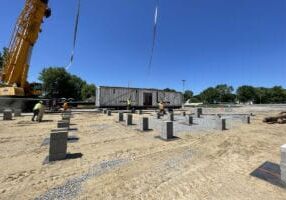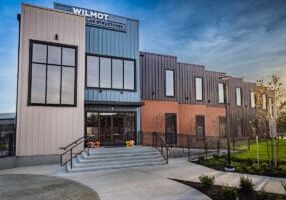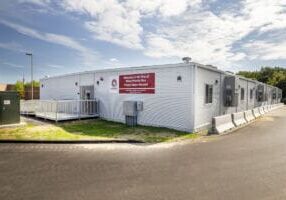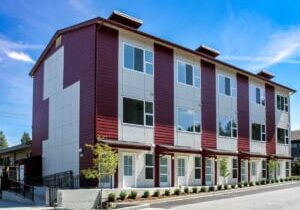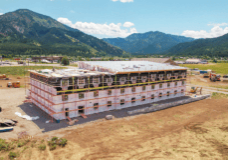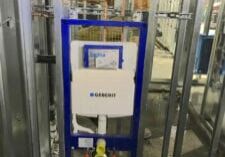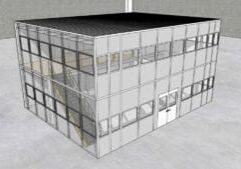Modular Construction for Hospitals, Clinics, and Medical Centers
The demand for quick, cost-effective, and sustainable infrastructure solutions is more pressing than ever for healthcare institutions. Enter modular construction for hospitals, clinics, and other medical centers. Modular building is a pioneering approach that is reshaping the landscape of the construction industry and healthcare facilities. Championed by the Modular Building Institute (MBI) and its members, modular construction brings forth innovative solutions tailored to meet the specific needs of the healthcare sector.
Benefits of Modular Construction
Modular construction distinguishes itself when it comes to hospitals, clinics, and medical centers through its ability to drastically reduce construction timeframes, achieve significant cost savings, and promote environmental sustainability. By prefabricating components in a controlled factory setting, projects can be completed up to 50% faster than traditional construction methods. This speed is crucial for the healthcare sector, where the rapid deployment of facilities can make a significant difference to community well-being. Cost efficiency is another standout benefit, as the prefabrication process reduces waste and streamlines labor requirements. Furthermore, modular construction's emphasis on sustainability aligns with the healthcare industry's growing commitment to environmental stewardship, utilizing eco-friendly materials and methods to minimize carbon footprints when constructing hospitals, clinics, medical centers, and more.
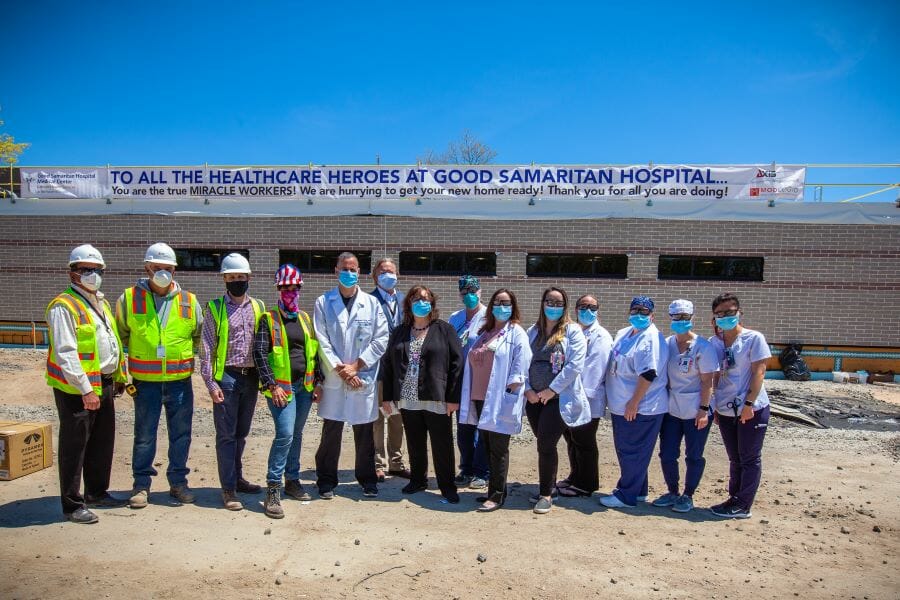
MBI Members' Achievements
MBI members have spearheaded several groundbreaking modular projects in the healthcare sector, demonstrating the tangible benefits of this innovative approach.
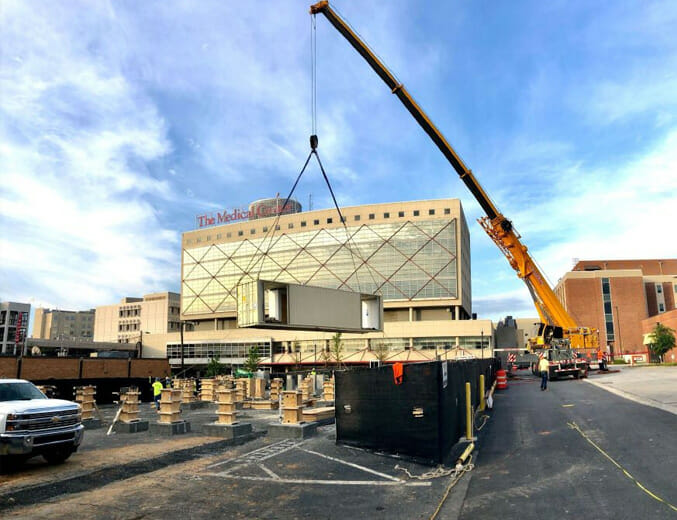
One notable example is the modular patient bed expansion at St. John's Hospital, where modular units were seamlessly integrated into the existing structure, significantly increasing capacity and enhancing patient care without the need for extensive on-site construction.
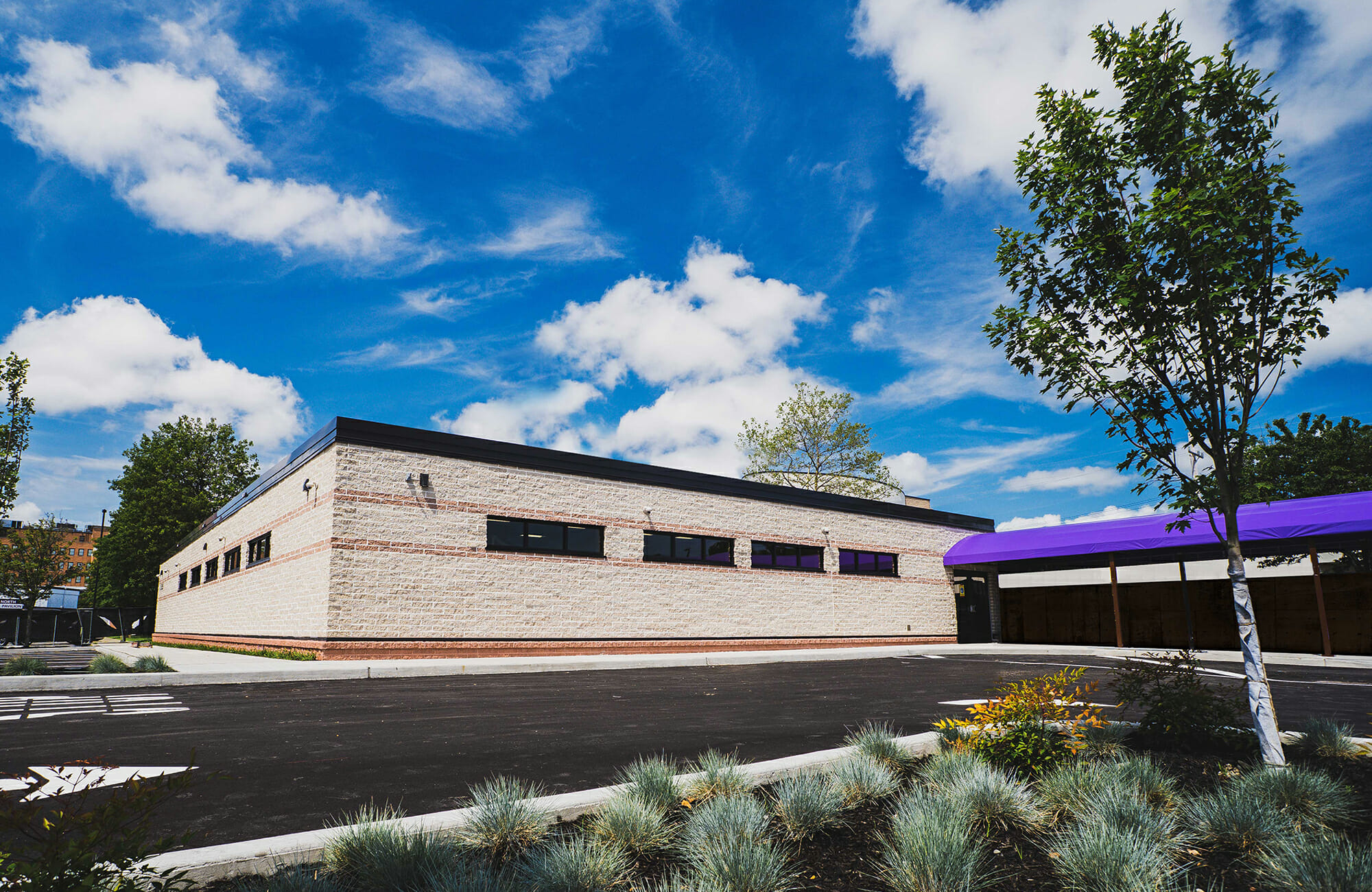
Another success story is the addition to the Good Samaritan Pediatric ED, an award-winning project that utilized permanent modular construction to expand essential services quickly and efficiently, showcasing the potential for modular techniques to create state-of-the-art medical centers.
The Future of Healthcare Construction
The future of healthcare construction is increasingly modular. With advancements in technology and materials, modular building techniques are becoming even more versatile and capable of meeting the complex requirements of hospitals, clinics, and medical centers. From emergency pop-up clinics to fully-fledged hospitals, modular construction offers a scalable and adaptable solution that can evolve with the changing needs of the healthcare industry.
The Value of Modular Construction
By offering speed, cost-efficiency, and sustainability, modular building techniques stand out as a critical solution for the challenges facing healthcare infrastructure today. As MBI members continue to innovate and push the boundaries of what is possible, the role of modular construction in healthcare is set to grow even further. We invite readers to explore more about how MBI and its members are leading the charge in healthcare innovations, paving the way for a healthier, more sustainable future.


